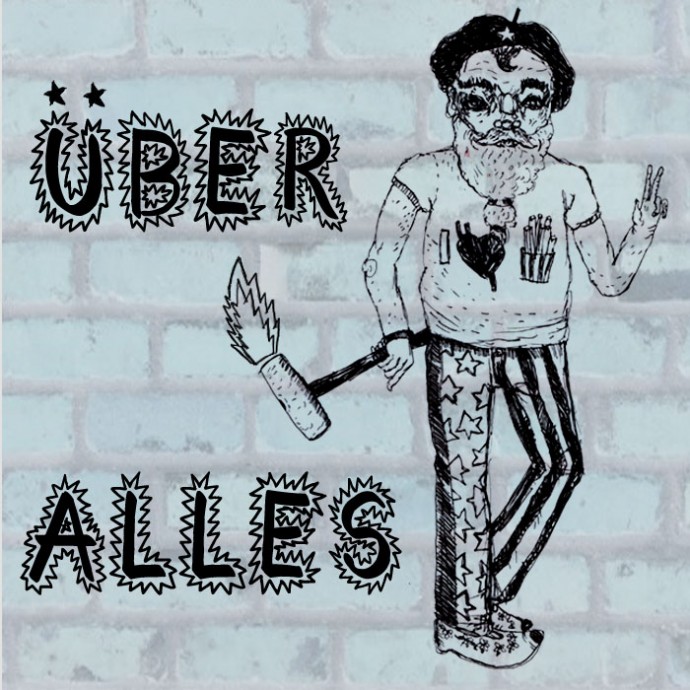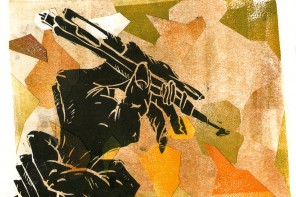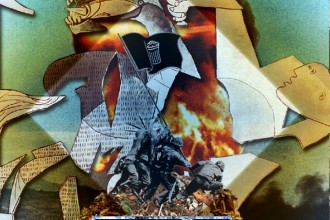Polish people drink a lot of vodka, Germans are well organized, and the French know how to cook. Those stereotypes are part of the image of the country, a national identity created by the country itself or his enemies. But feeling close to your country brings nothing good to the world. In fact, it is the prime ruler for division between the people. A young French student talks to us and explains how you should see your country and other people.
I hate it. I hate the concept and thinks it’s harmful in today’s globalised world. When I go abroad, the first question is always, “Where do you come from?” When people first meet someone they need to be able to categorise them, to put her or him in little boxes. “You´re French? You must be like that, that and that.” For me, this is really dangerous and moreover it´s harmful for everyone in society, we keep separating ourselves from knowing the real human beings and end up seeing only a country with a narrow, defined culture, and habits.
I deeply believe that the deconstruction of every Nation is the healthiest way to go. The concept of Nation itself does not make any sense anymore. Most nations were constructed ex nihilo (from nothing), the national figures and symbols are constantly changing and all that it triggers is difference between the people. Being proud of your nation is like building a prison around your mind. I strongly believe that every human being is equal and should behave like it. Nation is an obstacle to the definition of an indivisible humanity.
The Belgians realised this error long time ago. Their nation was created by France, England and Germany in 1830 and since then, they developed a dark humour about the fact that they don´t have strong national identity. So they just play with it. Having national heroes like Jean Claude Van Damme and making demonstrations called “chips and beer for freedom”. They understand that their nation does not define them and this makes them one of the most advanced nations. When the Belgians did not have a government for more than a year, they just did not care about it and everything went on running smoothly – like it always did.
Violence for the idea of nation has been on going for thousands of years; the state (in the western sense of it) has been perpetuating this concept to be able to focus the attention of the people elsewhere as a result the burning issues are constantly obscured by fictitious, nationalist ideology. During last year’s French presidential campaign there was a great debate in attempting to define what it was to be French. This pseudo debate triggered by former President Sarkozy was constructed for the sole purpose of distracting the attention of the population and the media from the real political and social issues: the condition of the welfare state, the lack of teachers, work and retirement plans, all these issues were overshadowed for several weeks by this meaningless debate.
Moreover, the state has used the idea of Nation to put walls between the people; at the end of the 19th century, caricatures of German people in French newspaper were stereotypically prejudicial, the same on the other side. Even in 2008, The Sun – hardly a newspaper, sadly the most sold in the U.K – had on the front page, top-right a nationalist joke every day. An example: “Why are the Parisian alleys boarded by trees? So the German Army can walk in the shadow.” These types of jokes, used in a non-ironic manner, triggers hate and creates a perceived difference between French and English citizens. It should be the other way around.
You always need a reason to make a war, the first cause throughout history was religion, and the second is probably Nation. The conflict which has been going on between Tutsi and Hutus in Congo and Rwanda was triggered by the Belgium authorities in order to keep power – let them tear each other down as long as we are in power. This conflict has been going for 60 years and made more than a million victims. In the Berlin conference in 1884, the Europeans leaders took a big map of the African continent and drew the countries on it with a pen and a ruler. 51% of the actual African borders still match the one from the conference.
The very idea of a nation implies that a change in the system is impossible. Nationalism is preventing us from visualizing needed change. The first step in order to bring humanity together is to abolish all walls between the people. A German has to stop thinking of him or herself as a German, same thing for a Bolivian, a Chinese, for everybody.
When we abandon nationalist ideology, instead embracing individual responsibility to the world, we retrieve our identities from those delegated to run our nations. To be at the head of a country does not permit you to define the people in it. It’s about representing them and doing everything you can for their well-being.
We must define ourselves as humans first, but as a part of the world. We have to consider unification before division. We must strive for what bring us together instead of that which divides.







